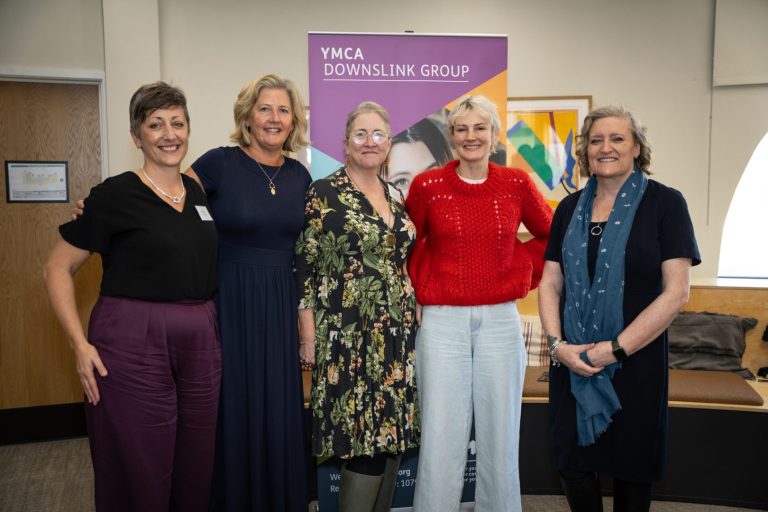A powerful coalition of leaders and changemakers came together in Brighton, on the eve of World Mental Health Day and World Homeless Day, to ask a vital question: how can we reimagine services for young people?
 We hosted the event to address the rising mental health needs and housing insecurity affecting thousands of young people across Sussex and Surrey, at a time when services designed to help them are underfunded and under immense pressure.
We hosted the event to address the rising mental health needs and housing insecurity affecting thousands of young people across Sussex and Surrey, at a time when services designed to help them are underfunded and under immense pressure.
The event began with the showing of a short film, created by young people living in our supported housing in Sussex. They shared a moving insight into young people’s situations, experiences of homelessness and struggles with mental health. See the film below.
The event, at The Projects, Nile Street, was facilitated by Natalie Orringe, founder of Strategy+ Impact, and convened a high-profile panel including:
- Bella Sankey, Leader of Brighton & Hove City Council
- Jane Padmore, CEO of Sussex Partnership NHS Foundation Trust
- Lorna Tucker, filmmaker and author
- Kathy Evans, CEO of the National Youth Advocacy Service
- Emily Brock, CEO of YMCA DownsLink Group.
 About 60 people, many from local authorities and organisations involved in supporting young people, joined a lively question and answer session with the panellists.
About 60 people, many from local authorities and organisations involved in supporting young people, joined a lively question and answer session with the panellists.
Emily Brock said: “As the largest regional charity working to prevent youth homelessness and support children and young people’s mental health, we are on the front line of the crisis facing young people today.
“We wanted to bring our partners together to jointly lead a way forward for young people. And I was delighted with the response to our invitation to action at the event, which aimed to disrupt the status quo and explore bold, innovative solutions to improve young people’s lives.”
 Brighton & Hove City Council Leader Bella Sankey said that the film highlighted the real difficulties young people were facing in mental health, housing and homelessness and the need to do more.
Brighton & Hove City Council Leader Bella Sankey said that the film highlighted the real difficulties young people were facing in mental health, housing and homelessness and the need to do more.
“There are a disproportionate number of children and young people living in temporary accommodation – 40 percent in temporary accommodation are under 18 so they are drastically over-represented. It’s a huge challenge and we want a renewed focus on young people and children in our new [housing] strategy.”
She added: “Local government re-organisation offers an opportunity to rationalise how homeless services are delivered within a  unitary authority.”
unitary authority.”
Jane Padmore, CEO of Sussex Partnership NHS Foundation Trust (SPFT) which is responsible for mental health services, reflected that the film highlighted the need to co-produce and develop services with the people who were using
them. Issues such as housing were linked to mental health. “If [people] are not fed and not safe, they do not feel secure.”
Discussing devolution and the creation of a single Sussex mayor, she said: “Our systems are not set up for people working together. Having who is looking after the population of Sussex means we can be a bit braver.”

Partners attending the event will now develop a youth-focused Call to Action to be presented to Sussex’s mayoral candidates ahead of upcoming elections, and to Surrey County Council.
The panel agreed that no single organisation can tackle these challenges alone. What’s needed is joined-up leadership across councils, charities, health services, youth organisations – and most importantly, young people themselves.
The stakes are high. With rising youth homelessness, increasing mental health pressures and stretched services, the time for action is now.
 The event concluded with a shared commitment to move beyond competition and bureaucracy, and to work together to deliver real change.
The event concluded with a shared commitment to move beyond competition and bureaucracy, and to work together to deliver real change.
The full Call to Action will be published later this month and shared with Sussex mayoral candidates and Surrey County Council, and on our website.
Thank you to our sponsors:
With thanks to The Projects for free use of their Globe Room. With thanks to Trident for sponsoring the refreshments.


